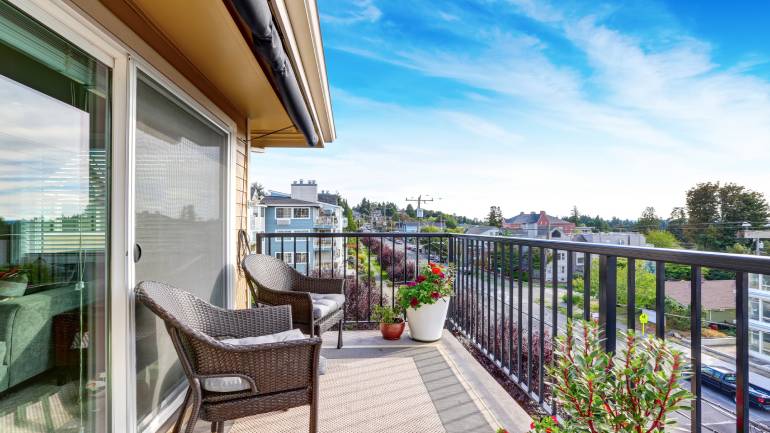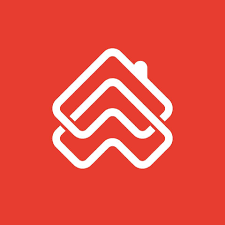Unless you have enough cold hard cash to pay for your HDB flat in full, you’re probably like the rest of us, where you need to get a loan —usually either a bank loan, or the HDB concessionary loan — to finance your purchase. Of the two, HDB concessionary loan is probably the more popular option. In this article, we look at the HDB loan eligibility conditions, as well as what else you need to know when taking a loan from HDB.

Buying
Looking to take out a bank loan instead? Find out how hiring a mortgage broker can help make the process easier.
HDB Loan Eligibility (HLE) conditions
The main difference between a bank loan and an HDB concessionary loan is the list of criteria that you have to meet. In the case of a bank loan, usually all you’ll need is a healthy credit score, but HDB loans come with several conditions you need to meet in order to be eligible.
This is what is known as HDB Loan Eligibility, or more commonly known as HLE.
If you are a first-time applicant, you’ll have to meet these conditions, according to HDB:
Citizenship
- At least one Singapore citizen (SC) buyer
Household status
- Have not previously taken two or more housing loans from HDB
- Have taken one housing loan from HDB and the last owned property is not a private residential property (local or overseas), including a HUDC flat, a property acquired by gift, a property inherited as a beneficiary under a will or as a result of the Intestate Succession Act, a property owned/acquired/disposed of through nominees
Income ceiling
- $14,000 for families
- $21,000 for extended families
- $7,000 for singles buying a 5-room or smaller resale flat or a 2-room new flat in a non-mature estate under the Single Singapore Citizen (SSC) Scheme
Ownership
- Must not own or have disposed of any private residential property in the 30 months before the date of application for an HDB Loan Eligibility (HLE) letter
- You can’t own a private residential property (local or overseas), which include a property acquired by gift, a property inherited as a beneficiary under a will or as a result of the Intestate Succession Act, a property owned/acquired/disposed of through nominees
- You also do not own more than one market/ hawker stall or commercial/industrial property. If only one market/ hawker stall or commercial/industrial property is owned, you must be operating the business there, and have no other sources of income
Remaining lease
- The loan amount will depend on the extent the remaining lease can cover the youngest buyer to the age of 95.
Note that if your income stream is not salaried – for example, you do odd-jobs, or freelancer work – your monthly income might undergo what’s known as a ‘haircut’ where only 70% of it is considered for the loan application.
HDB doesn’t regard the following as part of your monthly household income:
- Alimony or maintenance fees
- Bonuses
- Claims/reimbursement/expenses
- Director’s fees
- Dividend income or interest from deposit accounts
- Income from ad hoc overtime work
- National Service allowance
- Occupier’s income
- Overseas cost of living allowance
- Pension
- Rental income
- Scholarship overseas allowance
If you’ve met all the HDB loan eligibility requirements, you can then apply for the HDB Loan Eligibility Letter (HLE). Alternatively, if you’re still unsure or just want confirmation, you can take a questionnaire from HDB to find out whether you’re actually eligible.
Do keep in mind that the amount you’ll be eligible to borrow will depend on the following:
- Loan to Value Limit (LTV): This is the maximum loan amount that can be issued to you for a particular property. It’s expressed as a percentage of the property’s market value. For HDB loans, it’s up to 90%.
- Mortgage Servicing Ratio (MSR): This refers to the portion of your monthly income that goes towards repaying property loans. It’s capped at 30% of your monthly income, and only applies to housing loans for HDB flats and executive condominiums.
- Total Debt Servicing Ratio (TDSR): This refers to how much of your monthly income can go towards your monthly debt repayments. It includes all debt obligations, such as your credit card bills, car loans, student loans, and any property loans – including the one you’re applying for. Your TDSR should be less than or equal to 60%.

The HDB Loan Eligibility (HLE) letter takes about 3 weeks to arrive
What is the HDB Loan Eligibility (HLE) letter?
In a nutshell, the HDB Loan Eligibility (HLE) letter is a document that states the loan amount that HDB will borrow you. Apart from that, it will also state the following:
- Repayment period
- Monthly instalments
- Flat type
- Flat lease
- When the letter expires
The HDB loan amount and your CPF/cash savings, factoring in CPF Housing Grants, will then determine your available budget for the flat.
Your loan amount from HDB will depend on three key factors:
- Your age
- Your income
- Your financial standing
HDB is more likely to extend higher loan amounts to you if you’re younger, since you’ll have more years available to pay off the loan before you hit retirement age.
If you’re buying a Build-to-Order (BTO) flat, you’ll need to have the HLE letter before you book the new HDB flat, or, in the case of a resale flat, before you sign your Option to Purchase (OTP). Note that the HLE letter is valid only for 6 months.
How to apply for the HDB Concessionary Loan
You’ll first need to apply for the HLE letter online via HDB InfoWEB. This will entail providing your personal particulars as well as some financial documents for proof of income.
After getting the HLE letter from HDB, you’ll need to upload the necessary documentation on the HDB portal, and then you’re done! HDB will usually reply within 14 days on the outcome, and you can track your application on the MyHDB portal.
Here is the list of documents to upload, depending on your type of employment and CPF contributions:
If you are an employee with CPF contributions:
- Three months’ payslips
- Latest 15 months’ CPF contribution history
If you are an employee without CPF contributions:
- 6+ months’ payslips
- Credit Bureau report
- Latest 6+ months’ bank statements/passbook
If you are self-employed:
- Latest Notice of Assessment from IRAS or Certified Annual Statement of Accounts from an auditing firm
- Credit Bureau report
- Latest 6+ months’ bank statements/passbook
If you are commission-based, or a part-time worker:
- 6+ months’ commission statements or payslips
- Latest 15 months’ CPF contribution history
- Credit Bureau report
- Latest 6+ months’ bank statements/passbook
If you are an odd job worker:
- Latest Notice of Assessment from IRAS or a recent letter from the employer certifying job designation, commencement date, and commission/salaries for 6+ months
- Latest 15 months’ CPF contribution history
- Credit Bureau report
- Latest 6+ months’ bank statements/passbook
If you are unemployed:
- Income proof for the preceding month(s) from the previous employer stating your gross monthly income and last day of service
- Latest 15 months’ CPF contribution history
Once your application is successful, HDB will contact you to finalise your loan, such as whether you plan to pay the mortgage payments in cash, or through you and/or your co-applicant’s CPF Ordinary Account (OA).
How to check your HDB Loan Eligibility (HLE) status?
Upon application, you will receive a HLE number. To check the status of your HLE application, you may do so at the HDB website by logging in with your NRIC and HLE number.
What is the HDB loan interest rate?
HDB lists the current interest rates of the HDB loan on its website. As of now, the current rate is 2.6%. Taking into consideration that bank loans have not exceeded 2% in nearly 10 years, the HDB loan interest rate seems rather high. Even so, it is worth noting that the interest rate for HDB loans have stayed consistent for quite some time.
This stability is appealing to homeowners, who are then able to set aside an amount every month for the repayment without worry that the rate may suddenly rise. You can also borrow more – HDB loans allow you to finance up to 90% of the cost of your flat, whereas bank loans allow only up to 75%.
Bank loan interest rates can be lower, but they tend to fluctuate after 2 to 3 years. If you aren’t sure which loan to go for, you can check out a comparison of HDB loan versus bank loan.
What about the HDB Downpayment?
HDB lists down the payments you need to make on HDB’s website. If you have opted for the HDB loan, the downpayment will be 10% of the purchase price. You can make this payment through the savings in your CPF Ordinary Account (OA) and with cash. It is with noting that the downpayment amount might factor heavily into your flat-purchasing decision.
For example, you and your spouse are looking at buying a particular flat, and after checking your CPF accounts, find that you only have a combined amount of $30,000. Unless you have sufficient extra cash to spare, it may be more feasible to look for an HDB flat that does not exceed $300,000. If you pick a more expensive flat, then you will have to pay the remainder of the downpayment in cash.
Other related FAQs on HDB eligibility:
Who is eligible for BTO?
The minimum age to buy a BTO flat is 21 years old. At least one of the buyer must be a Singapore citizen (SC), the other buyer must either be a SC or Singapore Permanent Resident (SPR). The monthly gross income must also not exceed $14,000 for a 4-room or larger flat. Also, you can own any property or received any HDB grants previously.
How much loan can I get?
To qualify for an HDB loan, your gross monthly income cannot be more than $14,000 ($21,000 for extended families and $7,000 for singles). The maximum LTV for HDB loan is 90%, but you must also consider the MSR and TDSR, which is capped at 30% and 60% respectively.
How can I check my HDB eligibility?
To check your eligibility, use HDB’s e-service. You need to fill in a few basic questionnaires.
Can I buy HDB without loan?
Yes, you can. If you’re buying an HDB flat without any loans, then you won’t need the HLE letter from HDB or the Letter of Offer from a bank. However, you will need to indicate that you’re purchasing the flat with CPF and/or savings.
How do you calculate your loan eligibility?
Your loan amount from HDB will depend on three key factors: Your age, income and financial standing

Buying
Want to know if you’re eligible for HDB’s Staggered Downpayment Scheme? Read this article here.

Find Property
Interested to view listings for HDB flats in Singapore? Check out our latest listings here.

Buying
Considering getting an executive condo instead? Find out what you need to know before you get one.

Property Guides
Click HERE to get more interesting guides like this, or check out PropertyGuru.

